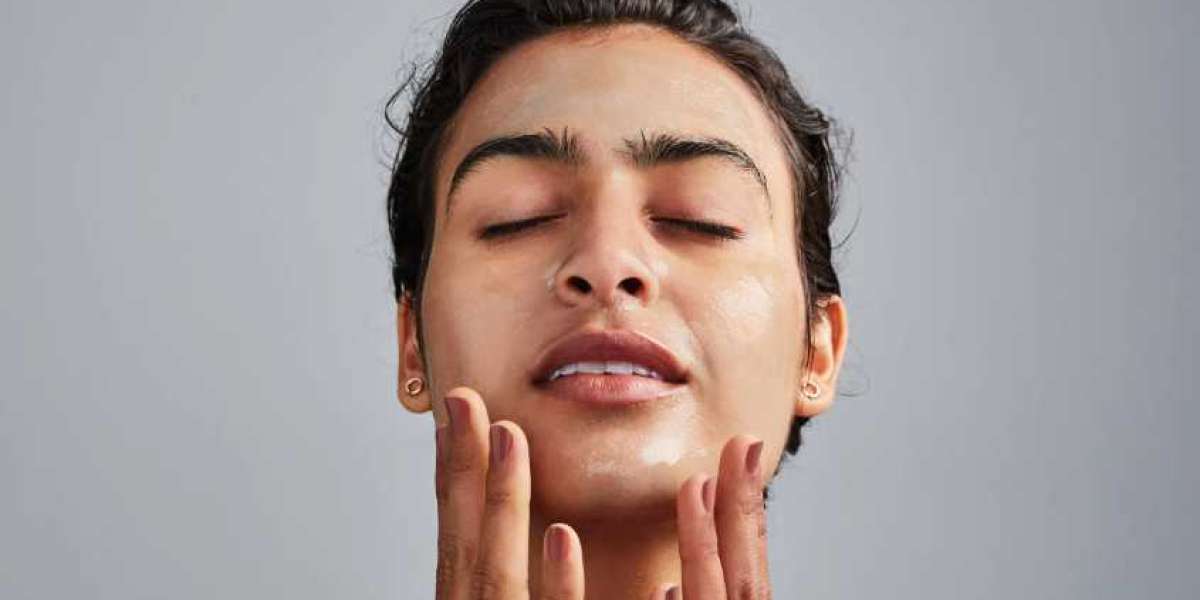Introduction
Aging is a natural process, but with the right skincare routine, you can age gracefully while maintaining healthy, youthful skin. This guide will walk you through the best anti-aging tips, essential products, and effective ingredients to help minimize fine lines, wrinkles, and other signs of aging.
1. Understanding the Aging Process
Before diving into anti-aging products, it’s essential to understand how and why skin ages.
- Natural aging: As we age, our skin produces less collagen and elastin, leading to wrinkles, sagging, and loss of firmness.
- Environmental factors: Sun exposure, pollution, and lifestyle choices (like smoking) can accelerate skin aging.
- Genetics: Your genes also play a role in how quickly your skin ages, but good skincare can slow down the process.
2. The Essential Components of an Anti-Aging Routine
2.1 Gentle Cleansing
As we age, the skin becomes more sensitive and prone to dryness, so it’s crucial to use a gentle, hydrating cleanser.
- Tip: Avoid harsh cleansers that strip your skin of natural oils.
2.2 Exfoliation for Cell Turnover
Exfoliation helps remove dead skin cells, improving texture and tone. Chemical exfoliants like AHA (alpha hydroxy acids) or BHA (beta hydroxy acids) are gentler on aging skin compared to physical scrubs.
- How often: Exfoliate 1-2 times per week to promote cell turnover without irritation.
2.3 Hydrating Toner
A hydrating toner preps your skin for better absorption of the active ingredients in your routine.
- Key ingredients: Look for toners with hyaluronic acid or glycerin to lock in moisture.
2.4 Serums Packed with Anti-Aging Ingredients
Serums deliver potent ingredients directly to your skin. The following serums are anti-aging powerhouses:
- Vitamin C: This antioxidant brightens skin, evens out tone, and boosts collagen production.
- Retinol (Vitamin A): Known for reducing fine lines and wrinkles by accelerating cell turnover.
- Peptides: These short chains of amino acids help to rebuild skin proteins and improve elasticity.
2.5 Moisturizer for Aging Skin
As you age, your skin loses moisture more quickly, so a richer, more hydrating moisturizer is necessary.
- Tip: Opt for a moisturizer with ceramides, hyaluronic acid, or peptides to deeply nourish your skin and strengthen the skin barrier.
2.6 Eye Cream
The skin around the eyes is thinner and more prone to aging, so using an eye cream that targets puffiness, dark circles, and crow’s feet is essential.
- Key ingredients: Caffeine, peptides, and retinol are great for rejuvenating the eye area.
2.7 Sunscreen
The most effective anti-aging product you can own is sunscreen. Daily use of a broad-spectrum SPF 30 or higher will protect your skin from the harmful effects of UV rays, which cause 80% of visible aging.
- Tip: Apply sunscreen even on cloudy days, and reapply every two hours if you’re outside.
3. Key Anti-Aging Ingredients to Look For
3.1 Retinoids
Retinoids (and retinol) are the gold standard in anti-aging ingredients. They help with cell turnover, reduce the appearance of fine lines, and improve skin texture.
- How to use: Start with a low concentration and increase gradually to avoid irritation.
3.2 Antioxidants
Antioxidants like Vitamin C, Vitamin E, and niacinamide protect your skin from free radical damage and environmental stressors.
- Benefit: They prevent premature aging and brighten your complexion.
3.3 Hyaluronic Acid
This powerful humectant draws moisture into the skin, keeping it plump and hydrated.
- Best for: Dry or dehydrated skin that needs an extra moisture boost.
3.4 Peptides
Peptides are amino acids that help to rebuild collagen, elastin, and keratin, making the skin firmer and more resilient.
- Benefit: Reduces the appearance of fine lines and supports skin repair.
3.5 Glycolic Acid
An AHA that exfoliates the top layer of skin, revealing smoother and more even-toned skin beneath.
- Best for: Dull skin that needs rejuvenation and a smoother texture.
4. Lifestyle Changes for Youthful Skin
4.1 Diet and Hydration
What you put into your body affects how your skin looks and feels. A diet rich in antioxidants, vitamins, and omega-3 fatty acids can improve skin health.
- Tip: Drink plenty of water to stay hydrated from the inside out.
4.2 Get Enough Sleep
During sleep, your skin goes into repair mode, regenerating cells and recovering from damage.
- Tip: Aim for 7-9 hours of sleep each night and use a silk pillowcase to reduce skin friction.
4.3 Exercise
Regular physical activity boosts circulation and delivers more oxygen and nutrients to your skin, keeping it healthy and radiant.
5. Professional Anti-Aging Treatments
5.1 Chemical Peels
These treatments use acids to remove the top layers of skin, revealing fresher, younger-looking skin underneath.
5.2 Microneedling
This minimally invasive procedure stimulates collagen production by creating tiny micro-injuries in the skin.
5.3 Laser Resurfacing
Laser treatments can improve skin texture, reduce wrinkles, and fade hyperpigmentation by targeting damaged areas of the skin.
Conclusion
Aging is inevitable, but with the right skincare routine, ingredients, and lifestyle choices, you can slow down the visible signs of aging and maintain radiant, youthful skin. Consistency is key, so start incorporating these steps and products into your daily routine for long-lasting results.
This comprehensive guide equips readers with everything they need to know to create an effective anti-aging skincare regimen.
https://trendybeauti.ae/








